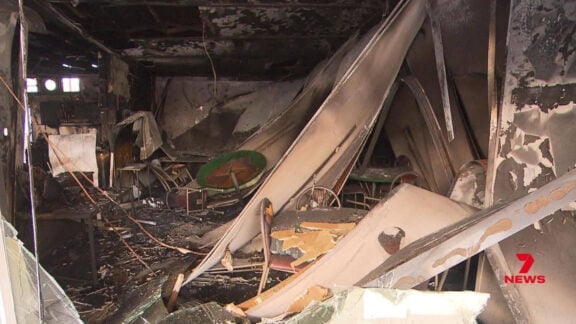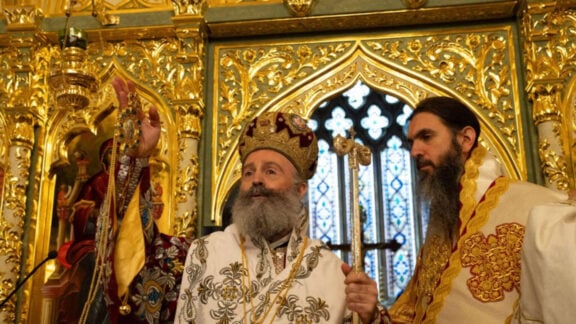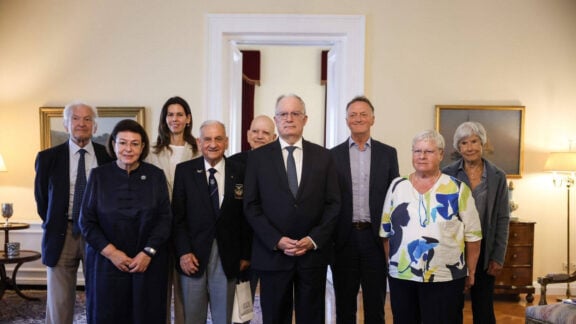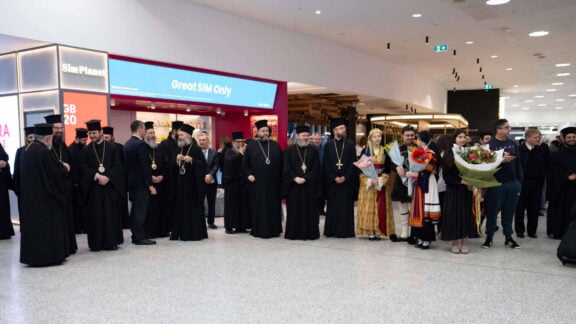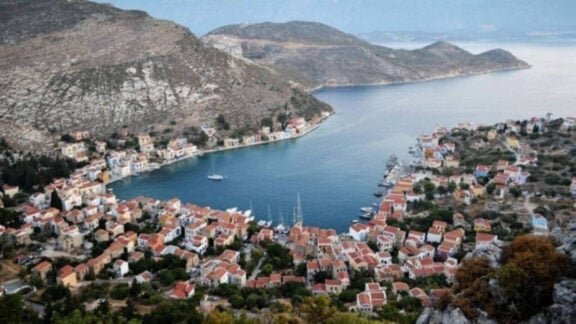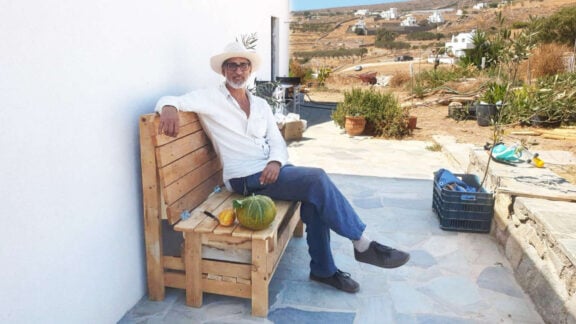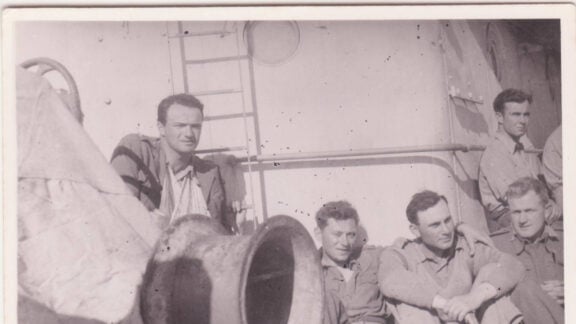This is a sad week, as one of our peers, a towering figure in multicultural media and the Italian Australian community, Ubaldo Larobina, founding editor of Il Globo, passed away at 92.
It has been 64 years since that first of Il Globo and six since Larobina announced his decision to retire as director of Italian Media Corporation, passing the role to his son, Julius.
Born in Reggio Calabria on January 17, 1931, Ubaldo Larobina lived most of his ‘Italian’ life in Rome. His mother was a teacher and moved there for work. He grew up without a father from a very young age.
In Roma, Larobina studied law before allowing himself to be seduced by his real passion – journalism. He began in Il Tempo di Roma, but many of our elders emigrated to Australia in 1957 as part of that tremendous post-war migration wave from Italy and Greece.
Larobina, like many of that generation, began his Australian life in the migrant camp of Bonegilla, then worked in a factory in Melbourne because in the ‘lucky country’, nothing came for free.
In 1959, the opportunity arose for Larobina to chase his dream; he pitched an idea to his friend, Tarcisio Valmorbida, who was already an established businessman. The proposal drew ‘Terry’ Valmorbida out of the family business to finance a new Italian-language newspaper, Il Globo.
Ubaldo Larobina’s media enterprise comprised Il Globo, La Fiamma, and radio, Rete Italia.
Il Globo contributed hugely to changing the face of Australia; it provided another voice in what was then a parochial Anglocentric nation.
Thanks to Il Globo and the other media enterprises under Larobina, Italian language and culture, community and welfare organisations, and language schools continue to thrive.
Larobina was a staunch advocate for multiculturalism; there was hardly a prime minister or premier who did not seek his advice on all issues.
In his poignant farewell, the editor of Il Globo, Dario Nelli, wrote:
“His was a long journey in which he crossed paths with thousands of other lives, making an impact upon countless destinies and even indirectly on the history of multicultural Australia.”
Italy, la patria, was also a beneficiary of Larobina’s activities. Il Globo advocated for Italy and augmented Australian and Italian commercial and cultural exchanges when needed.
“Ubaldo Larobina”, Nelli wrote: “created something special from nothing and gave the Italian community of Australia a reliable, safe, and impartial travelling companion, a ‘friend’ of every Italian or lover of the Italian language.”
“Ubaldo Larobina had journalism in his blood and the community in his heart, as did all those who made his dream possible over the years.
“He has my infinite personal admiration.
“I had the opportunity and the good fortune to spend part of my working life at his side. A small part of his incredible journalistic and human story also became mine. I will be forever grateful to him for that.”
The success of Il Globo was not accidental; the timing was right – and Larobina’s vision and hard work did the rest.
Il Globo’s success is “the essence of what the newspaper wanted to be and what it has succeeded in being.”
“Il Globo has always had the ambition to bring the ‘village square’ to you, to circulate local information that directly interests the mass of our readers,” writes Nelli, Il Globo’s editor.
Larobina’ spoke for Italians in Australia. During mass post-war immigration in this country, the masthead facilitated the formation of regional, provincial and village associations and clubs.
“The relationship with our public is the fundamental reason for our existence. Larobina believed that a newspaper for Italians abroad must provide information and constitute a link between the various realities of our communities.”
Larobina endeavoured to ensure that the Italian community continues to have a strong voice and recognised presence in Australia in print, radio and now also TV.
That is why he continued to follow every new project and initiative with interest, bypassing nostalgia and continuing to think about the future.
“It is difficult to focus, still raw with emotion, on such a great loss – for his family, before anyone else – but also for all those who worked with him,” an emotional Nelli wrote.
“He was an example for others, a teacher without ever lecturing, wise, discrete, respectful and a great communicator who took a lot of pride in the work we have chosen to do while always having the utmost respect for those who read or listen to us.”
In the 60th anniversary issue, Ubaldo Larobina recounted some of his emotions as he wrote about “the long days in the editorial office, the nights in front of the typewriter, the ticking of the clock that brings closer the moment the newspaper goes to press.”
“The endless discussions to choose the news – the smiles, the tension, the frustration, the pride of walking into the newsstand and looking at the front page – on which you had worked only a short time before – and standing there looking at it on the shelf for minutes. Nothing can convey all this to someone who has not experienced it firsthand.”
Life at the service of the Italian and Australian communities began behind a small desk in a small office on Sydney Road, Brunswick, with a small group of young journalists filled with the desire to explain this new country to their compatriots, as well as keeping them informed of and in touch with what they, often recently, left behind.
Il Globo quickly began to accompany the lives of those within the Italian community, not only in Melbourne but throughout Australia.
Ubaldo Larobina realised from the outset that he had to prepare himself before embarking on the adventure he had in mind.
A research trip through Victoria and New South Wales with Valmorbida allowed them to understand Italian communities outside the big cities. They constantly sought to understand, listen, and learn to give back to the community.
This journey was a starting point, and the reason for making a newspaper relevant to people was to provide a space for their stories, customs, and experiences.
Nelli merits Larobina’s ability to listen and reflect before answering. He writes that Larobina “was never hasty and never let himself be taken by impulse or negative emotions.”
He never decided without reason and never for personal interest but in the interest of the Italian community that shaped its destiny and grew more substantial day after day in its journey of perfect integration into Australian society. It exemplified the multiculturalism of which Il Globo and La Fiamma have long been promoters.
In the 1970s, Il Globo campaigned for the teaching of Italian at a time when Australian politicians did not see its value. In the end, Il Globo prevailed; it led the way for Italian schools and the teaching of the language in public schools.
Ubaldo Larobina was recognised for his service to the community, for the promotion of the Italian language and journalism by being awarded the honours of Grande Ufficiale by the Italian government, the Officer of the Most Excellent Order of the British Empire (OBE) and Officer of the Order of Australia (AO) by the Australian government.
In his farewell article in the masthead in 2017, the founding editor said, “Without a doubt, my most beautiful and most important contribution has been to give life to second, third and fourth generations who feel, appreciate and now also seek to rediscover and show their Italian origins.”
“Initiatives have appeared in recent years and hopefully will continue to multiply to bring together professionals, businessmen and sportsmen of Italian origin who wish to meet, get to know each other, and exchange contact details for future encounters. All these initiatives should be encouraged and supported.
“Similarly, the enrolment of young people in their parents’ clubs should be constantly encouraged so that they can take possession of them after the death of the last original member for a better use of real estate that would otherwise disappear into the hands of speculators, as unfortunately has already happened.”
in his farewell, Larobina thanked his wife, Lindy, “Australian by birth, Italian by adoption, who has been very close to me, allowing herself to be conquered by the Italian language, traditions and culture.”
“And my three children, Nicoletta, Marco and Julius, have given me seven wonderful grandchildren, all very proud of their strong ties with Italy.”
The Larobina legacy lives on with Julius and Nicoletta, who continue their father’s work, and are staunch advocates for multicultural journalism as essential public interest.
They continue to ensure that the Italian language, life, and culture live on.
Moreover, the mastheads, television, and radio stations
We at Neos Kosmos say “Vale Ubaldo” and we pass our condolences to our fellow travellers, Dario Nelli, Julius Larobina, and the whole media family, who make Australia a better place.

